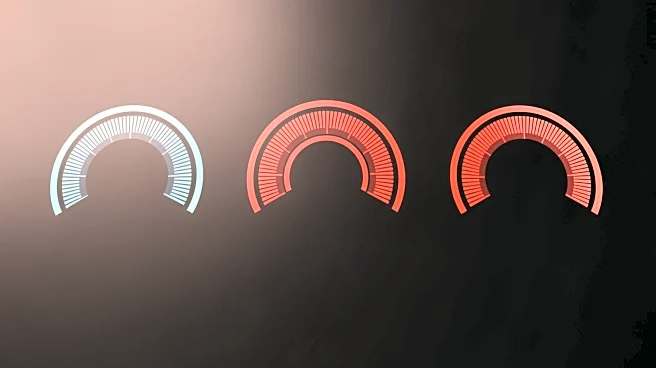By Rodrigo Campos and Libby George
NEW YORK/LONDON (Reuters) -After riding a wave of market gains for most of the first two years of Argentine President Javier Milei's government, investors expect him to turn
his party's redrawing of the electoral map into sweeping labor and tax reforms that could unlock billions of dollars in foreign investment.
The decisive midterm victory for Milei's party on Sunday has raised the prospect of structural change on a scale Argentina has not seen in decades. After acknowledging the need to build bridges within the legislature, Milei said in his victory speech that the newly elected group of legislators would be "the most reformist Congress in Argentine history."
The combination of Milei's strengthened mandate and explicit U.S. support - to the tune of up to $40 billion - will lure investors to consider longer-term exposure to Argentine assets despite the country's track record of policy whiplash, analysts said.
"The momentum is 100% with him, and he is in a stronger position than he's ever been to push reforms in Congress," said Gustavo Medeiros, head of research at Ashmore Group.
"The big problem is, every two years you have this gun on your head that people are worried about - the major change in the political dynamics (and) a major change in economic policies," Medeiros said. Milei's decisive victory - if followed by an aggressive push to complete the economic overhaul he has started - could permanently break the cycle, he said.
For years, foreign direct investment in Argentina has been held back by an unpredictable policy landscape and quick boom-and-bust cycles, usually linked to elections or the agricultural commodities cycle.
But the midterm win has given Milei's government the kind of political leverage Argentina has rarely seen, with investors not asking whether reforms will happen, but how far and how fast they will go.
A simpler tax system, more flexible labor laws and lower pension costs could lower longstanding barriers to Argentina's competitiveness. For companies weighing capital commitments in mining, energy or technology, the ability to plan years ahead would mark a decisive break from the past.
Recently, artificial intelligence company OpenAI vowed an investment of up to $25 billion for a data center project and Chevron Corp recommitted to its investment in the Vaca Muerta shale formation. The U.S. International Development Finance Corporation said last week it was discussing with the government strategic investment across a range of industries, including critical minerals and infrastructure.
"Mining projects for copper and lithium and rare earths, those take a decade to come to fruition," said Graham Stock, senior sovereign strategist at RBC Global Asset Management in an interview. "You need more than a two-year horizon to make that commitment. And now there's a reasonable chance that we have that."
Shamaila Khan, head of fixed income for emerging markets and Asia Pacific at UBS, also said Argentina could emerge as more of a "destination for long-term investments" if Milei can build the needed legislative coalitions to pass reforms.
THE PESO QUESTION
One of the biggest risk factors hanging over Argentine financial markets remains the currency, which many economists view as overvalued. With the backdrop of a $20 billion U.S. swap line and years-long similar support from China, the currency has nonetheless remained under pressure.
An initial post-election rally strengthened the interbank exchange past 14% to 1,300 per dollar, but it ended the Monday session at 1,430, 4% stronger on the day, after having closed last week at 1,491.5.
Many investors see room for a more flexible exchange rate, or even for the current band to stay in place supported by fresh inflows. Others would prefer a weaker currency, especially to support exporters.
"The key risk is that the Milei administration sticks to the current exchange rate regime," said emerging markets economist Kimberley Sperrfechter at Capital Economics in a note. "That would leave the peso severely misaligned, lead to a further deterioration in the current account position and complicate the central bank’s efforts to accumulate FX reserves."
Gross FX reserves stand around $40 billion while net reserves, accounting for certain foreign currency liabilities, are in the red.
Milei's victory, while impressive, won't be a gamechanger unless he can generate the kind of lasting stability needed to allow for Argentina's vast resources - agricultural, energy and mineral - to entice a constant flow of foreign investment, analysts said.
"Argentina has massive potential, but to attract foreign direct investment, the type of investment that's making decisions on a very long-term horizon, that level of confidence can only be built with time," said Gorky Urquieta, senior portfolio manager and global co-head of emerging markets debt at Neuberger Berman in an email to Reuters.
"It's a very optimistic starting point, but there’s still a lot of ground to cover."
(Reporting by Rodrigo Campos in New York and Libby George in London; additional reporting by Karin Strohecker; Editing by Christian Plumb and Rosalba O'Brien)









